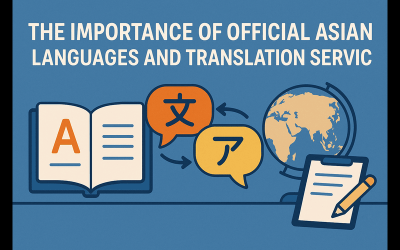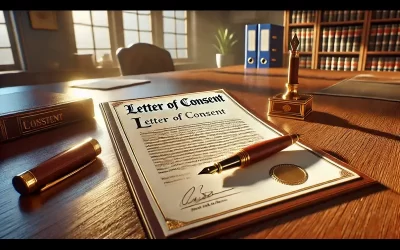So, you’ve found that special someone from another corner of the world, and you’re ready to take the plunge into marriage. Congratulations! Love truly knows no boundaries. But before you can walk down the aisle and say “I do,” there’s some important paperwork to tackle. One crucial document stands between you and wedded bliss: the marriage permit for foreigners. This permit isn’t just a formality; it’s a legal requirement that ensures your marriage is recognized and valid. Don’t let the thought of red tape tie you up in knots. We’re here to break it all down for you, step by step. Let’s embark on this journey together.
Why Is a Marriage Permit Necessary?
Think of the marriage permit for foreigners as the key that unlocks the door to your happily ever after. Governments require this document to confirm that both individuals meet all legal criteria to marry. It’s designed to prevent issues like bigamy, underage marriage, or unions that violate immigration laws. Without this permit, you might find yourself hitting a brick wall when trying to register your marriage. And let’s be honest, nobody wants that kind of headache right before their big day!
By ensuring that both parties are free to marry, the permit protects you and your partner from legal complications down the road. It might seem like just another piece of paper, but it’s a vital step in making your union official and recognized by law. After all, it’s better to be safe than sorry.
Where Do You Start?
The first step can often feel like the hardest, but don’t worry—we’ve got your back. Begin by doing thorough research on the marriage laws of the country where you plan to get married. Every nation has its own set of rules and regulations regarding foreign nationals tying the knot. You’ll need to know exactly what’s required to avoid any last-minute surprises.
Make a checklist of the documents you’ll need. This list might include items like birth certificates, passports, and proof of single status. Some of these documents can take time to obtain, especially if they need to be ordered from abroad or require official translations. Starting the process early gives you a buffer for any unexpected delays. Remember, the early bird catches the worm!
Professional Translation Services
Get your documents translated and certified by a professional translator in 120+ languages with 24 hour delivery.
Get a Quote
Gathering Essential Documents
Let’s dive deeper into the types of documents you’ll likely need:
- Valid Passports: These serve as proof of identity and nationality. Ensure your passport is up to date and won’t expire soon.
- Birth Certificates: This document verifies your age and parentage. Some countries require the long-form version, which includes parental information.
- Single Status Affidavit: Also known as a “Certificate of No Impediment,” this document declares that you’re free to marry. You can usually obtain it from your country’s embassy or consulate.
- Divorce or Death Certificates: If you’ve been married before, you’ll need to provide legal proof that the previous marriage has ended, either through divorce or the passing of a spouse.
Keep in mind that any documents not in the local language may need to be translated by a certified translator. Additionally, they might require notarization or an apostille to be considered valid. It’s not the most thrilling part of wedding planning, but it’s absolutely essential.
The Role of Embassies and Consulates
Your country’s embassy or consulate is more than just a government building in a foreign land; it’s a valuable resource in your marriage permit for foreigners journey. These offices can provide guidance on the necessary steps and may even supply certain documents directly.
Don’t hesitate to reach out to them. Consular staff are there to assist citizens abroad with legal matters, including marriage procedures. They can inform you about any country-specific nuances and help you navigate local bureaucracy. As they say, don’t be a stranger! Building a good rapport with embassy staff can make the process smoother and less intimidating.
Marriage Permit for Foreigners: Common Hurdles
Let’s face it: dealing with bureaucracy can be a pain in the neck. Here are some common obstacles you might encounter:
- Processing Times: Obtaining official documents can take longer than anticipated. Some certificates might take weeks or even months to process, especially if international mail is involved.
- Legal Jargon: Understanding legal terms and requirements can be confusing, particularly if there’s a language barrier. Misinterpreting a requirement could lead to delays or even rejection of your application.
- Different Laws: Each country has unique marriage laws that may differ significantly from your home country’s regulations. For instance, some nations have mandatory waiting periods or residency requirements.
But don’t throw in the towel just yet! Awareness of these potential hurdles is the first step in overcoming them. With patience and persistence, you can navigate through these challenges. Remember, where there’s a will, there’s a way.
Tips to Smooth the Process
Here are some practical tips to help you sail through the process with as few hiccups as possible:
- Start Early: Time is of the essence. Begin gathering your documents and information as soon as possible. This gives you a buffer to handle any unexpected delays.
- Stay Organized: Keep all your documents in one dedicated folder or binder. Use checklists to track what you’ve obtained and what you still need. Organization is your best friend here.
- Double-Check Requirements: Make sure you’re not missing anything by reviewing the requirements multiple times. It’s easy to overlook a small detail that could cause big delays.
- Seek Legal Advice: When in doubt, consult a professional. Immigration lawyers or legal advisors familiar with international marriages can provide invaluable assistance.
By taking these proactive steps, you can prevent minor issues from snowballing into major problems. After all, a stitch in time saves nine.
Certified Translation Services
Get your documents translated and certified by a professional translator in 120+ languages with 24 hour delivery.
Get a Quote
The Emotional Toll
Let’s take a moment to acknowledge the emotional side of this journey. It’s perfectly normal to feel overwhelmed or stressed out. Planning a wedding is already a big undertaking, and adding international legal requirements can make it even more challenging.
Remember to lean on your partner for support. You’re in this together, through thick and thin. Open communication can alleviate stress and keep both of you on the same page. Take breaks when needed, and don’t forget to enjoy the process. After all, this is the beginning of a new chapter in your lives. Keep your eyes on the prize, and don’t let the paperwork dampen your excitement.
Celebrating Cultural Differences
One of the most beautiful aspects of marrying someone from another country is the blending of cultures. Embrace the journey! While the process might be tedious, it’s also an opportunity to learn more about each other’s backgrounds and traditions.
Incorporate elements from both cultures into your wedding ceremony and reception. This not only makes your wedding unique but also honors the heritage of both partners. Every cloud has a silver lining, and in this case, the silver lining is a richer, more diverse celebration of your love.
Final Steps Before the Big Day
Once you’ve successfully obtained your marriage permit for foreigners, you’re on the home stretch. Here’s what typically happens next:
- Submit All Documents: Present your marriage permit along with all other required documents to the local registry office or equivalent authority.
- Set a Date: Upon approval, you can schedule your wedding ceremony. Some countries might have a mandatory waiting period, so plan accordingly.
- Plan the Ceremony: Now comes the fun part! Organize the details of your wedding, whether it’s a simple civil ceremony or a grand celebration.
- Ensure Legal Recognition: After the wedding, make sure to register your marriage with your home country’s embassy or consulate if necessary. This ensures your marriage is recognized both locally and internationally.
By diligently following these steps, you’ll be well on your way to a seamless wedding experience. The finish line is in sight!
A Quick Recap of Marriage Permit for Foreigners
Navigating the marriage permit process isn’t a walk in the park, but it’s entirely manageable with the right approach. Let’s summarize the key points:
- Understand Why the Permit Is Necessary: Marriage permit for foreigners is a legal requirement to ensure your marriage is valid and recognized.
- Research and Prepare: Know the specific requirements of the country where you’ll marry.
- Gather Essential Documents: Collect, translate, and notarize all necessary paperwork.
- Utilize Embassies and Consulates: They are valuable resources for guidance and assistance.
- Anticipate Common Hurdles: Be prepared for processing times, legal jargon, and differing laws.
- Stay Organized and Seek Help When Needed: Professional advice can save you time and stress.
- Embrace the Journey: This process is part of your unique love story.
By staying informed and proactive, you can overcome any obstacles that come your way. The end result—a lifetime with the one you love—is worth every effort.
 Rana Maalouf
Rana Maalouf

